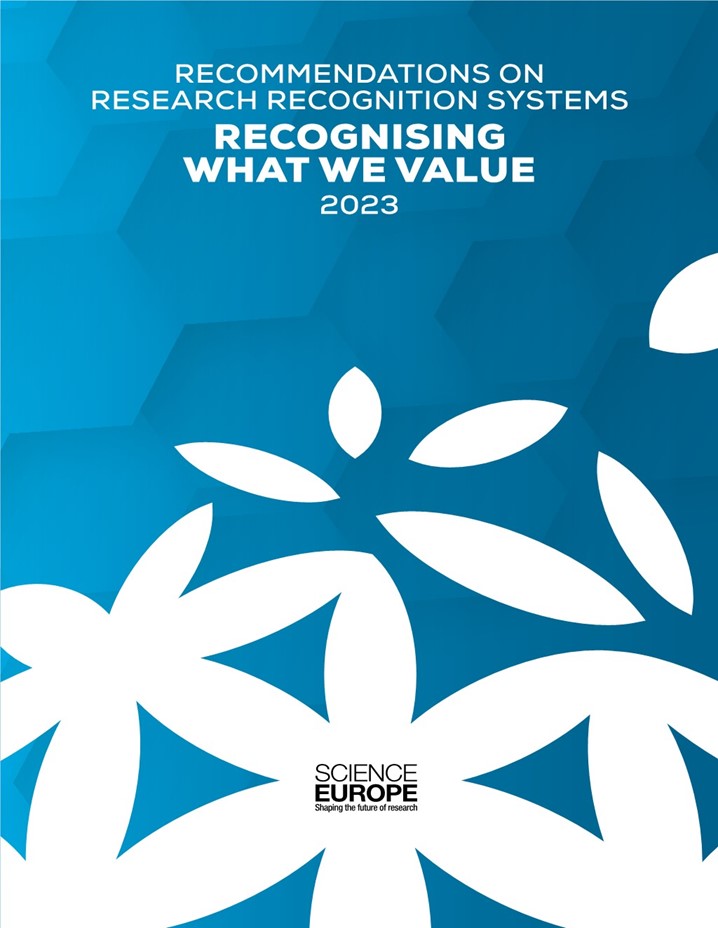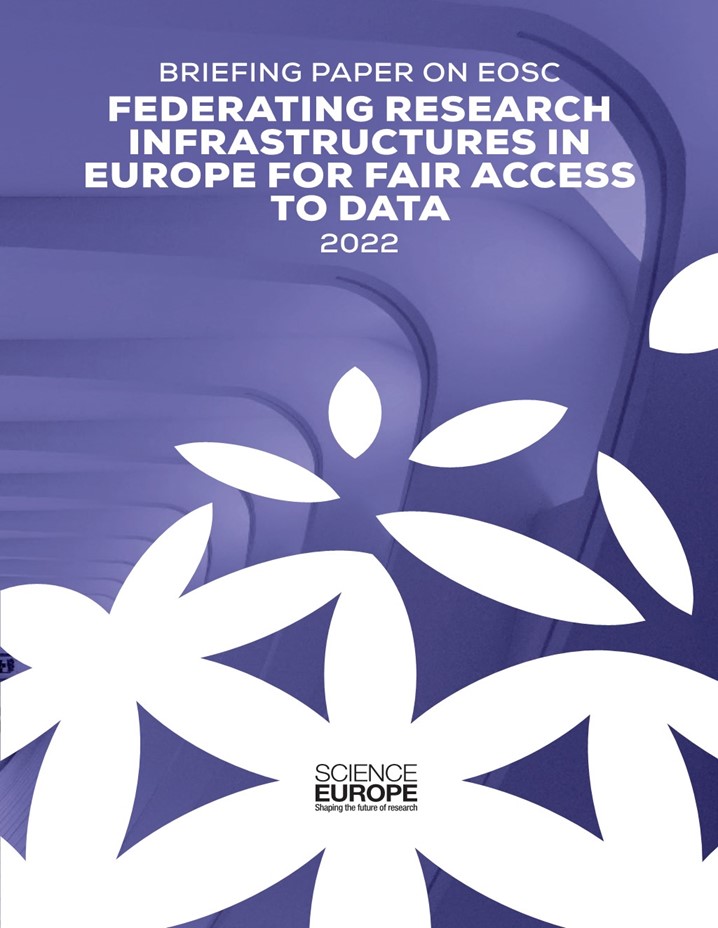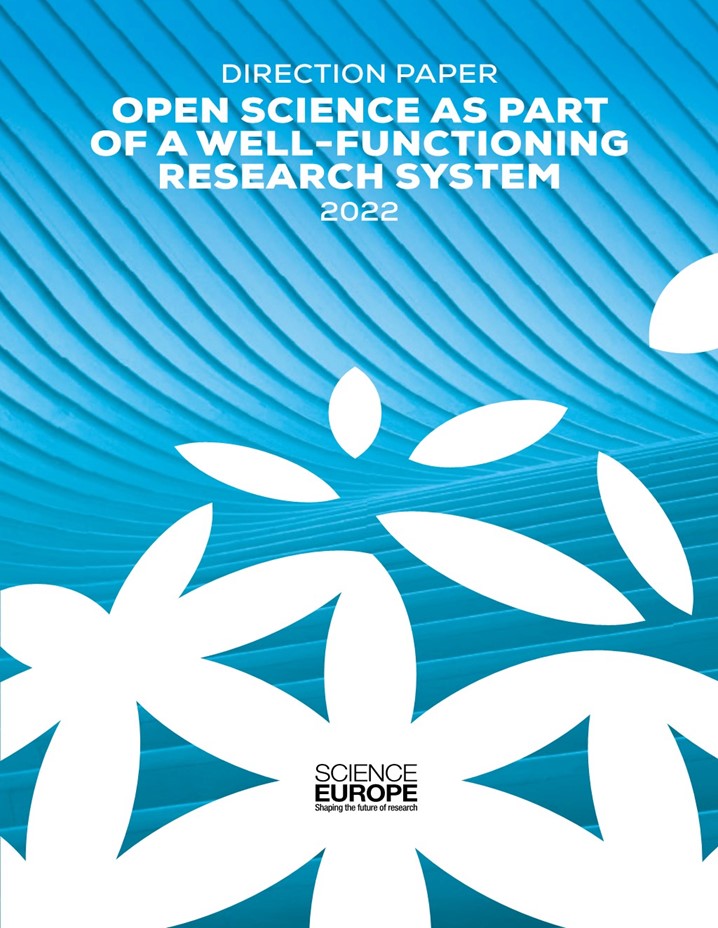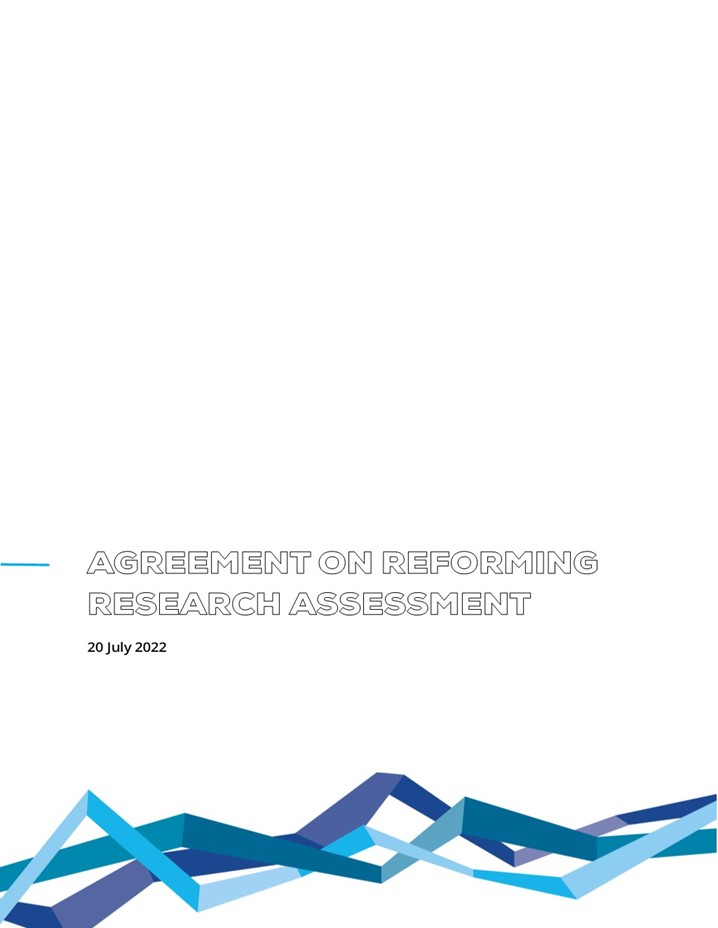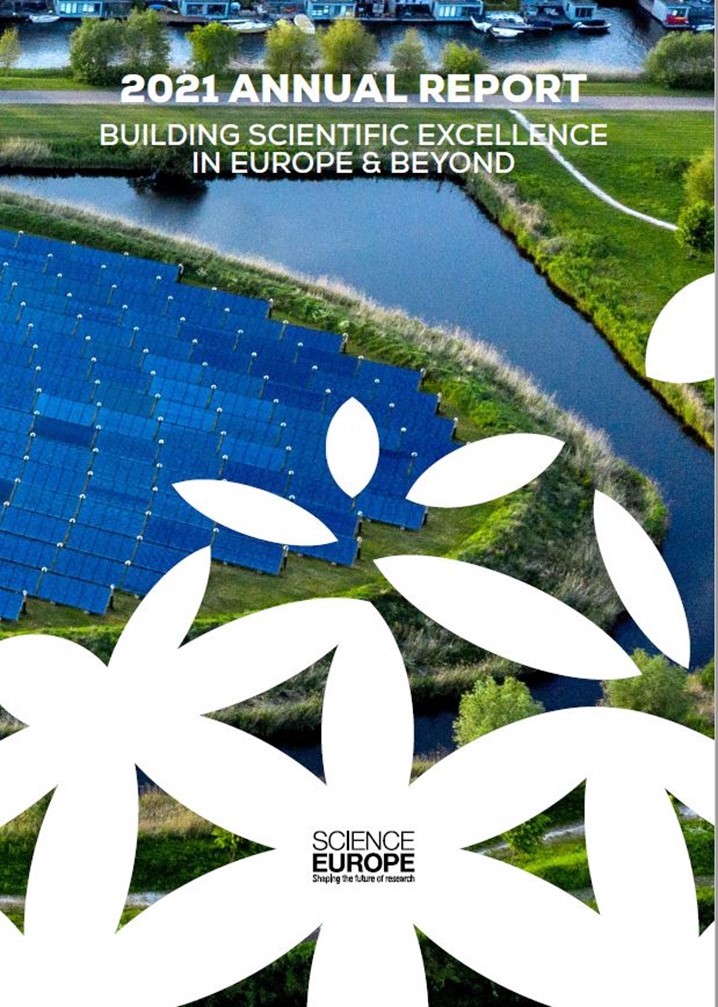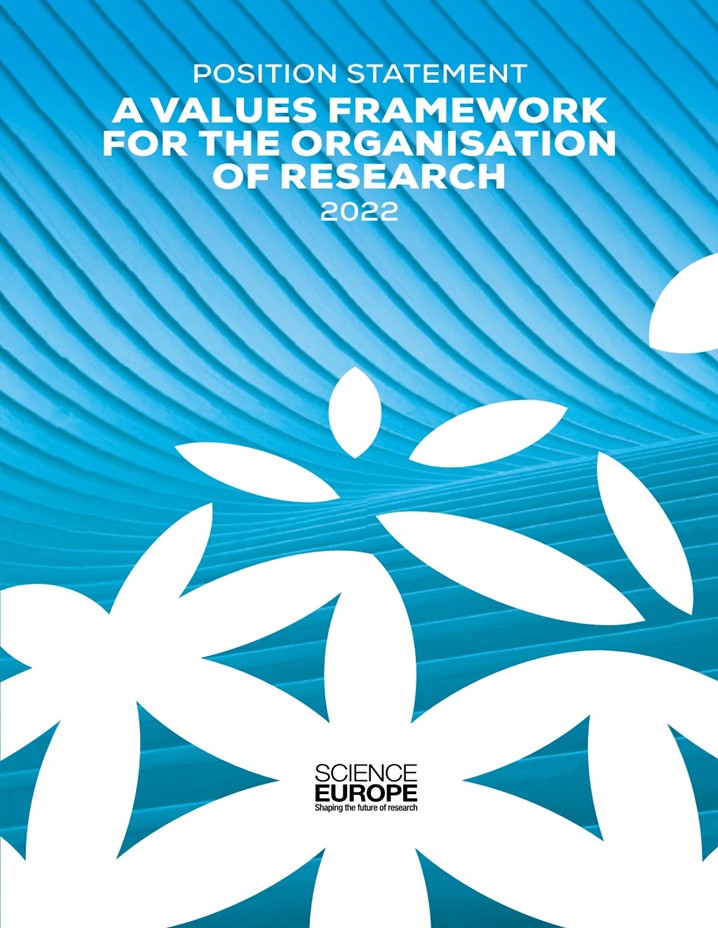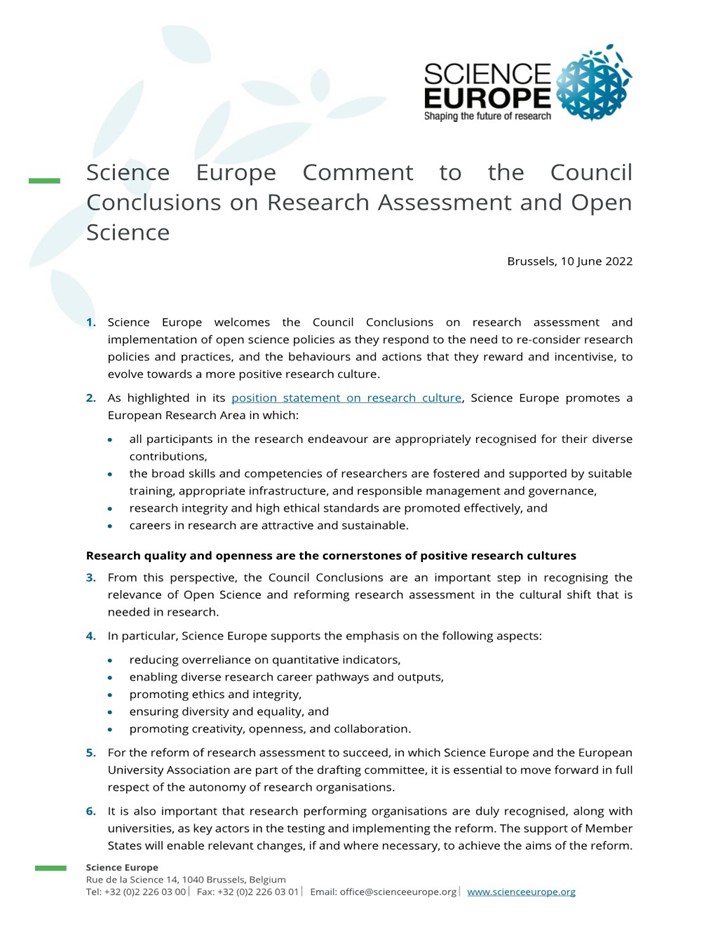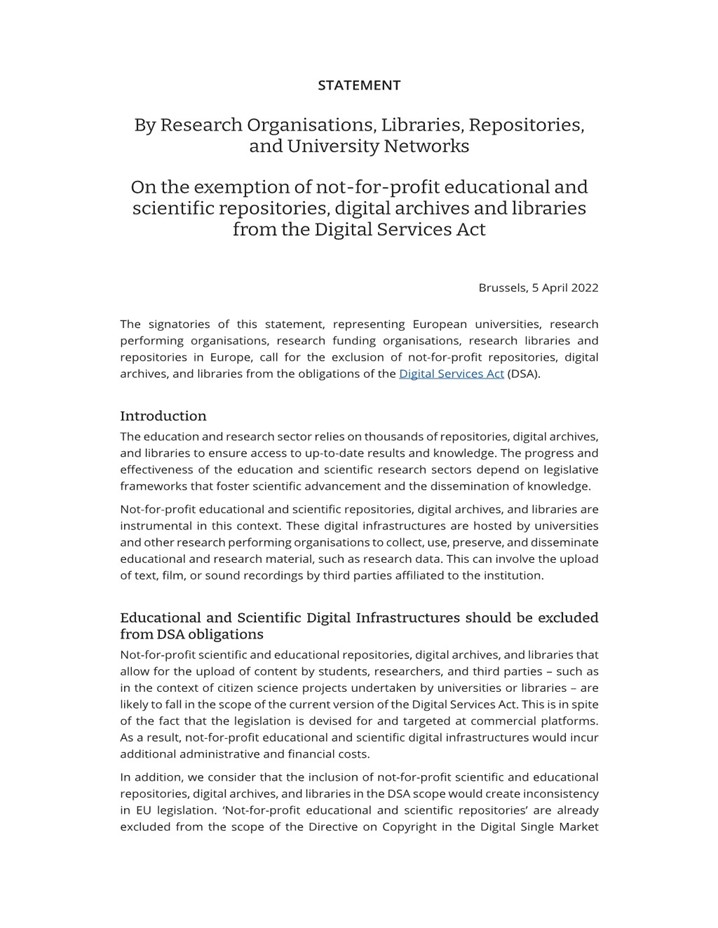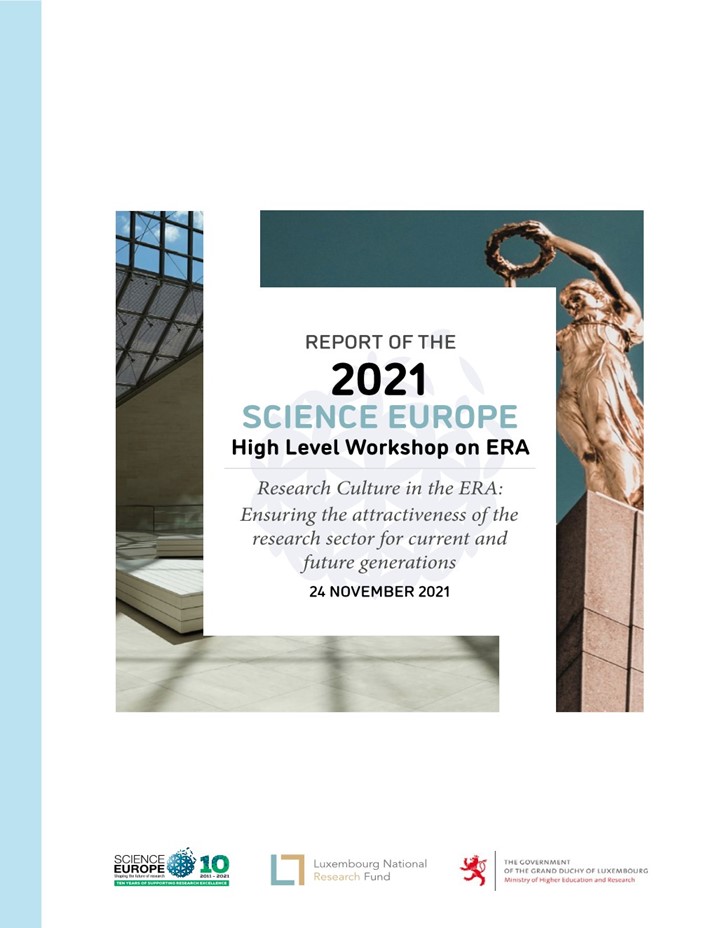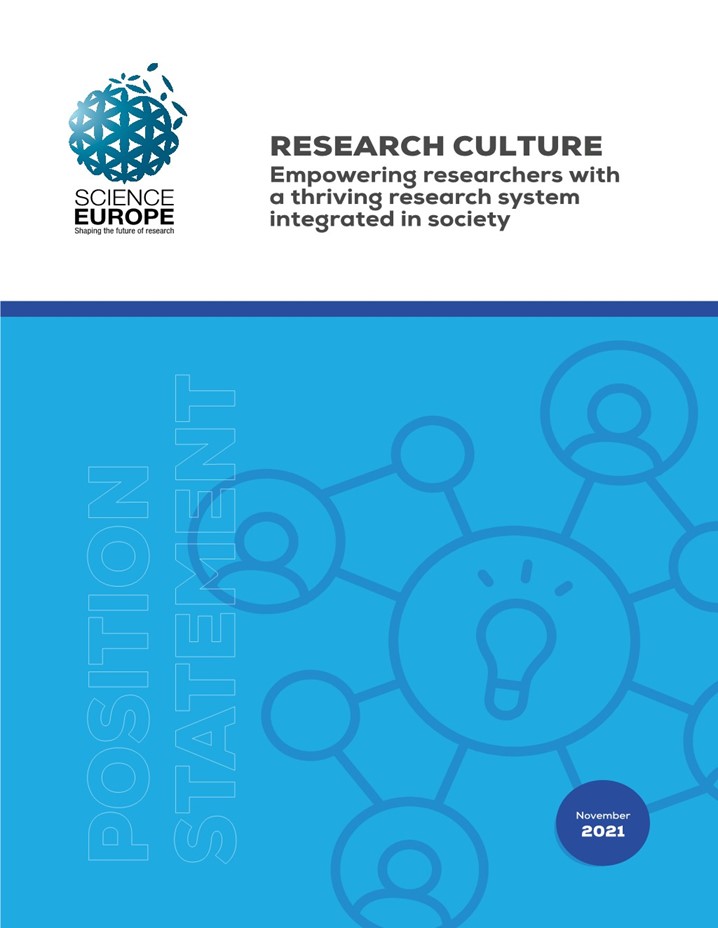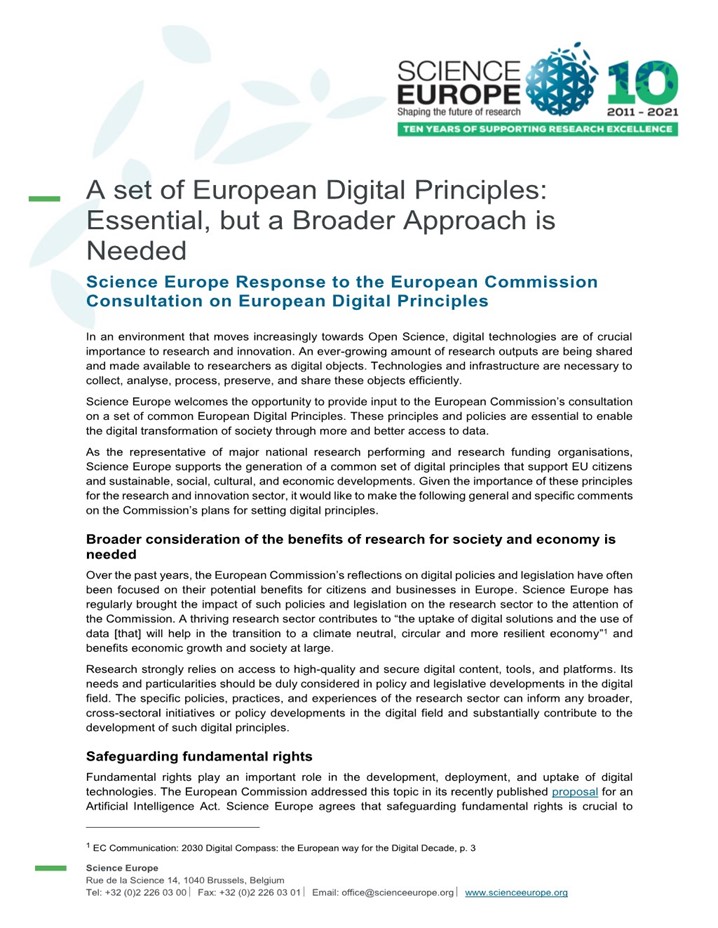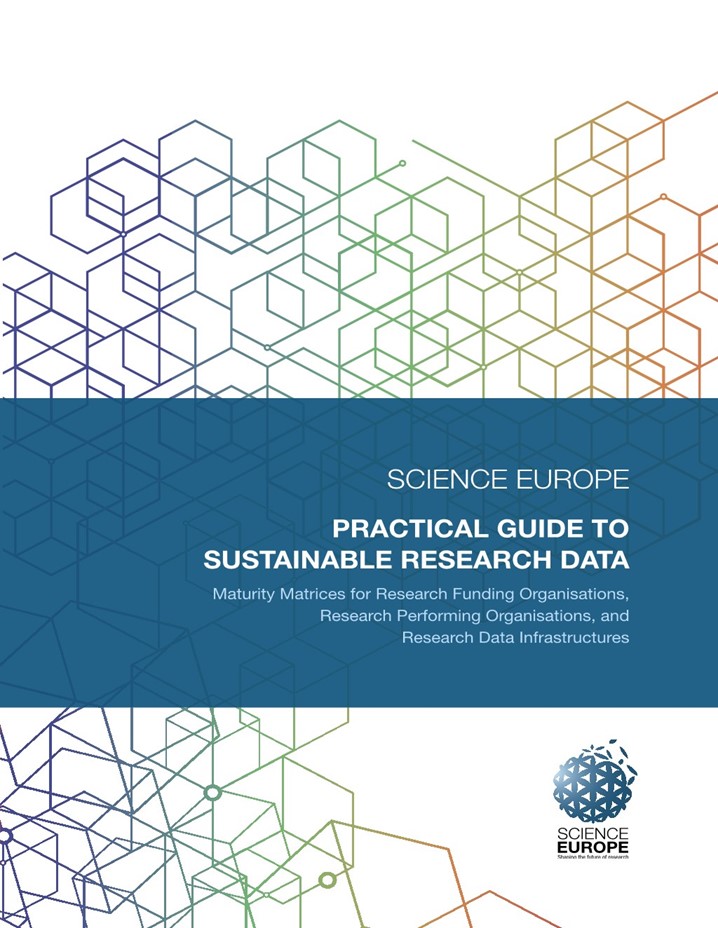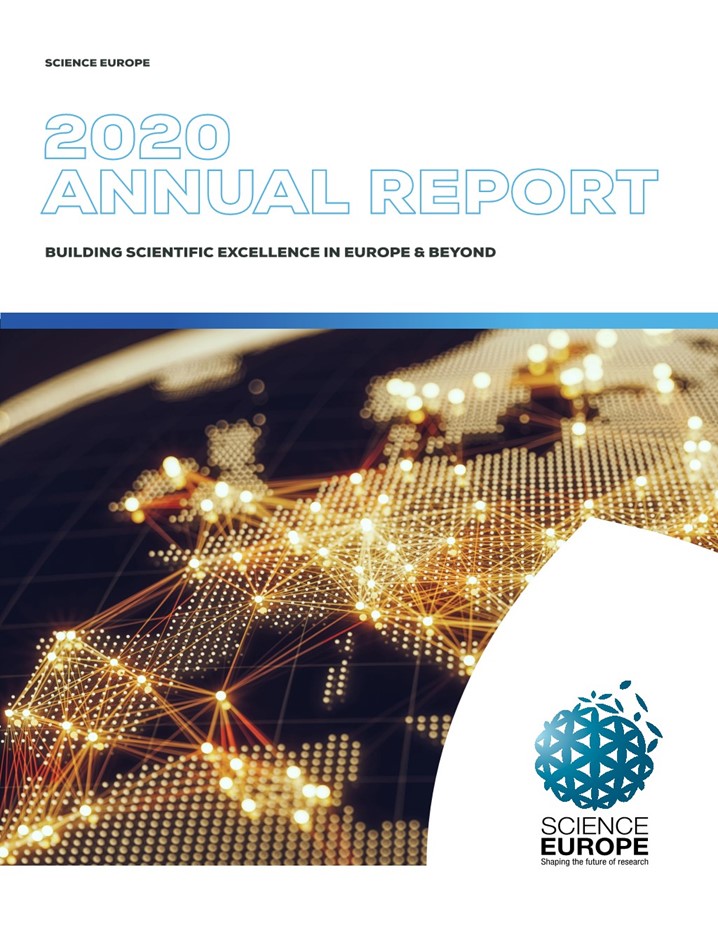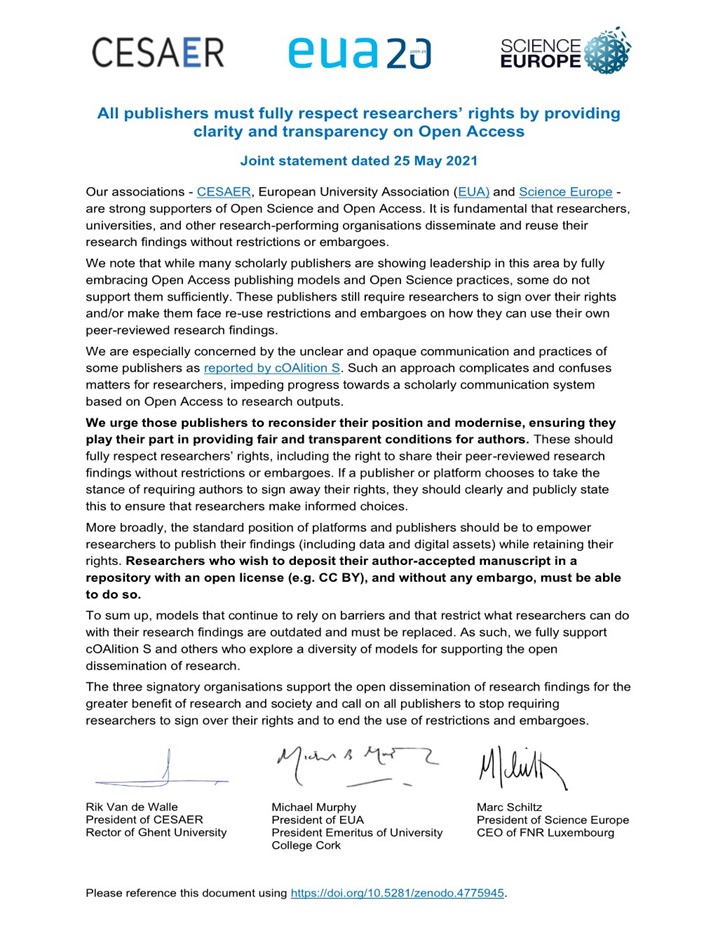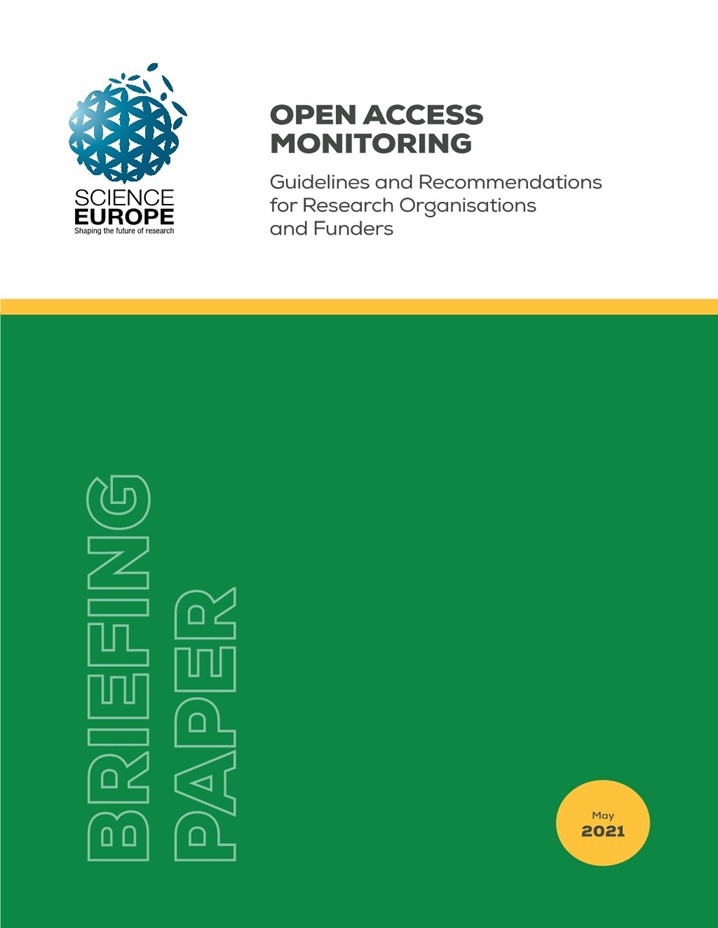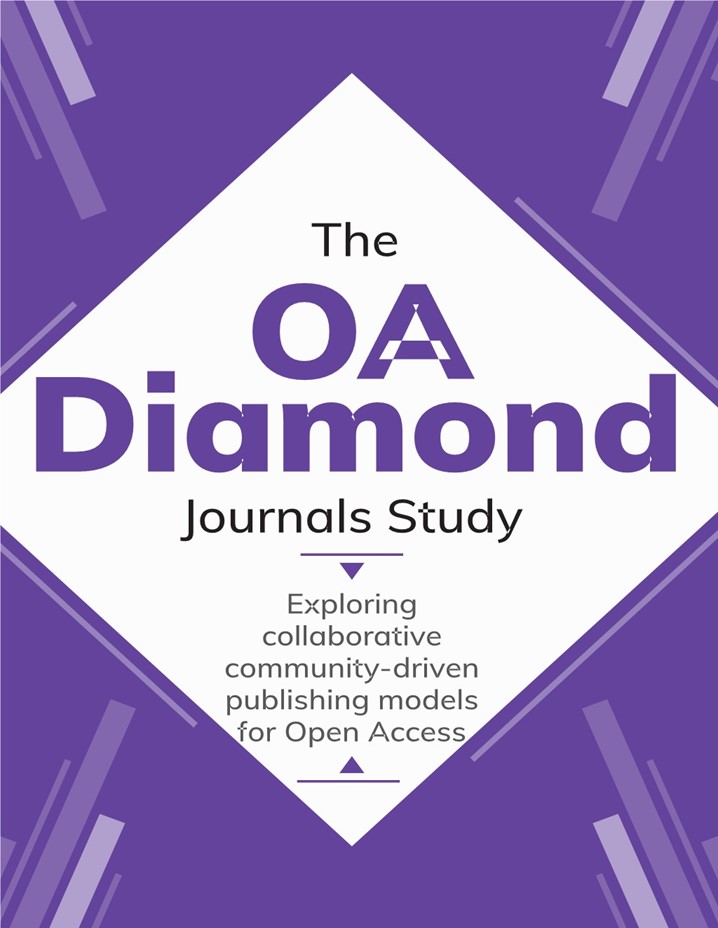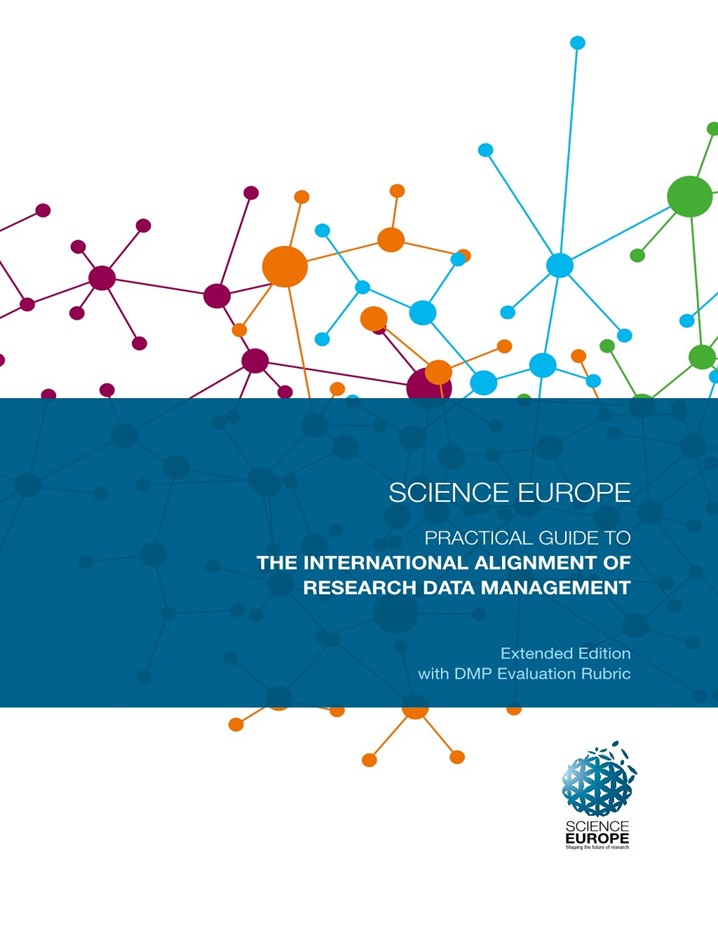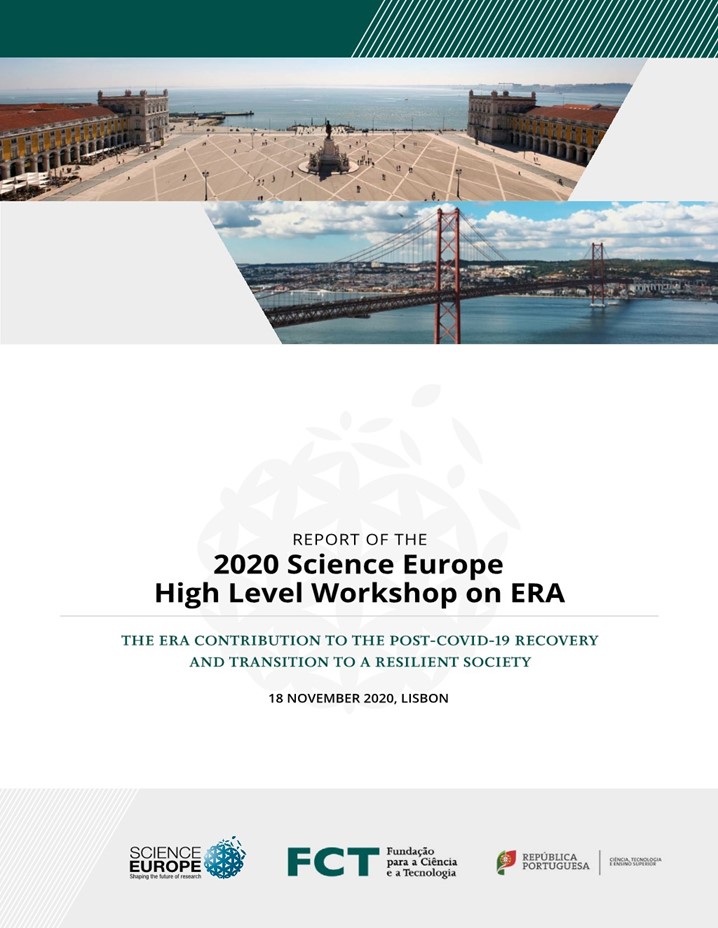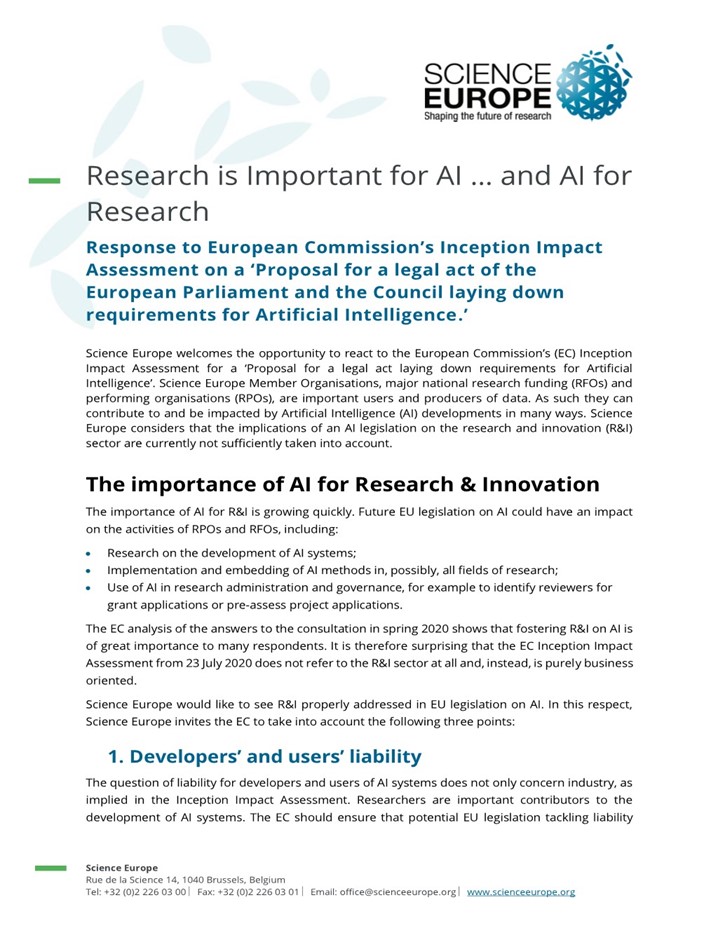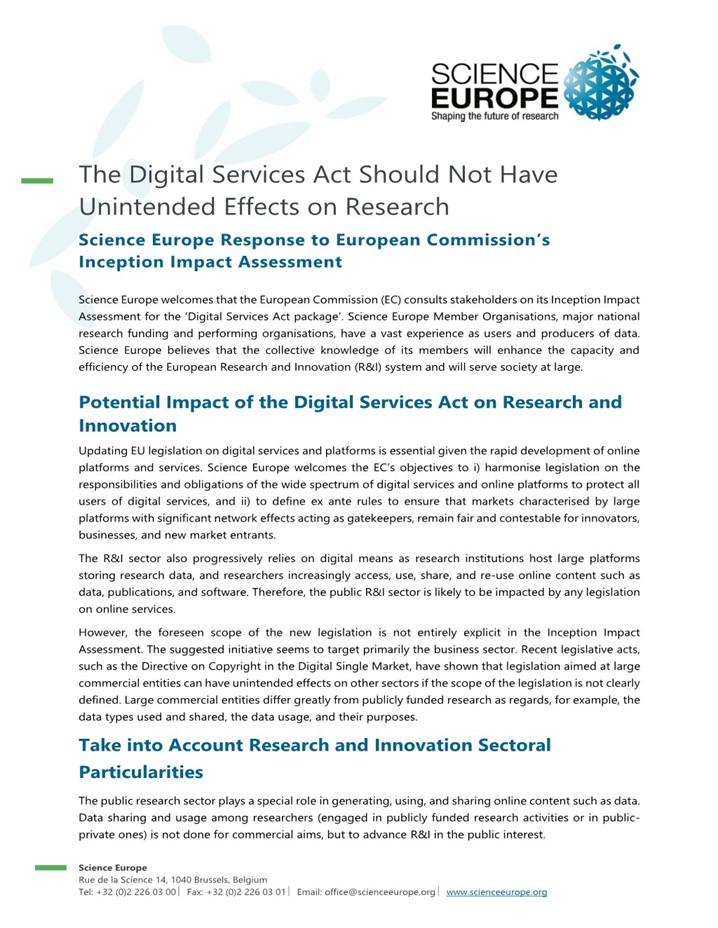Member-only content is available on this page. Please log in to view this content.

Our resources
Discover Science Europe’s comprehensive library of resources, including the most recent publications, briefings, and position statements.
79 resource(s) found
Recognising What We Value: Recommendations on Recognition Systems
Researchers, research services, and other community members at Research Funding and Performing Organisations play a key role in establishing recognition systems through the research assessment processes that they implement. These recognition systems strongly contribute to determining what is understood as research quality and excellence. Based on the Science Europe Values Framework (published in July 2022), this paper provides practical recommendations and good practice examples detailing how research organisations can continuously improve the way they assess research and researchers. The recommendations help to embed our shared values and contribute to the evolution of research cultures in Europe.
Briefing Paper on EOSC: Federating Research Infrastructures in Europe for Fair Access to Data
One of the most prominent initiatives in the digital and open transition of research is EOSC. This federation of existing research data infrastructures in Europe aims to create a web of FAIR data and related services for research
Open Science As Part of a Well-Functioning Research System
Science Europe and its members support Open Science as part of a well-functioning research system. This paper sets the direction for an open and seamless collaboration between research actors and involvement of societal parties where relevant.
Agreement on Reforming Research Assessment
This Agreement sets a shared direction for changes in assessment practices for research, researchers, and research performing organisations, with the goal to maximise the quality and impact of research. It includes principles, commitments, and timeframes for reforms and lays out principles for a Coalition of organisations willing to work together in implementing the changes.
Science Europe 2021 Annual Report
For Science Europe, 2021 was a very important year: the association celebrated its 10th year of existence. Founded in 2011, it has grown into a respected and influential voice in the European research policy debate. Moreover, we published a new Strategy Plan for 2021–2026, which maps our collective objectives and sets a specific yet flexible action framework over the next five years.
A Values Framework for the Organisation of Research
Science Europe launches a framework of shared values that serve as a guide to contribute to fostering a forward-looking research culture within the European Research Area, and globally.
Reaction to the Council Conclusions on Research Assessment and the Implementation of Open Science Policies
The Council Conclusions are an important step in recognising the relevance of Open Science and reforming research assessment, which are two essential elements of the cultural shift that are necessary to put research quality and openness are the cornerstones of positive research cultures.
Statement on the exemption of not-for-profit educational and scientific repositories, digital archives, and libraries from the Digital Services Act
Research organisations, libraries, repositories, and university networks call for the the exclusion of not-for-profit repositories, digital archives, and libraries from the obligations of the Digital Services Act.
Action Plan for Diamond Open Access
Science Europe, cOAlition S, OPERAS, and the French National Research Agency (ANR) present an Action Plan to further develop and expand a sustainable, community-driven Diamond OA scholarly communication ecosystem.
Report of the 2021 High Level Workshop on ERA: Research Culture in the ERA
The 2021 High Level Workshop on the European Research Area dealt with the topic of research culture and how to keep the research sector attractive for current and future generations of researchers.
Statement on Research Culture - Empowering Researchers with a Thriving Research System
The new statement on Research Culture envisages an ERA that focusses on the quality of research and its processes, supports scientific freedom, and promotes social diversity and inclusion, acknowledging that these conditions will, in turn, foster a productive research system.
Research Plays an Essential Role in Public Interest Data Use
Science Europe Response to the European Commission’s Consultation on a Future Data Act
A set of European Digital Principles: Essential, but a Broader Approach is Needed
Science Europe Response to the European Commission Consultation on European Digital Principles
Science Europe Strategy Plan 2021-2026
The Science Europe Strategy Plan comes at a crucial time for European Research an Innovation (R&I) and includes an updated vision, mission, values, and set of strategic priorities for the association. It supports its Member Organisation in their mission to create world-class scientific knowledge, delivering more benefit for our societies.
Q&A: Aligning Research Data Management Across Europe
On 27 January 2021, Science Europe presented the second, extended version of its Practical Guide to the International Alignment of Research Data Management during a webinar with more than 260 participants.
As it was unfortunately not possible to address all questions participants asked during the launch event, this document presents the answers to the questions asked to both Science Europe and the webinar speakers.
Practical Guide to Sustainable Research Data
This Practical Guide provides guidance to ensure the long-term preservation and accessibility of research data. Three complementary maturity matrices provide funders, performers, and data infrastructures with a way to create a common understanding of the approaches needed.
2020 Annual Report
The year 2020 saw a global pandemic attest to the value of science. In the race for COVID-19 treatments and vaccines, Science Europe’s Member Organisations were at the forefront of the global response and our association became more relevant and important than ever.
Joint Statement on Empowering Researchers in Open Access
Released in partnership with CESAER and the European University Association (EUA) this joint statement outlines how all publishers must fully respect researchers’ rights by providing clarity and transparency on Open Access.
Briefing Paper on Open Access Monitoring
This briefing paper aims to support decision makers at research organisations and research funders to develop new monitoring exercises or assess and improve existing processes to measure the Open Access status of publications.
The OA Diamond Journals Study
Science Europe and cOAlition S publish an in-depth report and recommendations arising from a study of community-driven Open Access journals across the world that are free for readers and authors, usually referred to as 'OA diamond journals'.
Commentary on the FAIRsharing Data Repository Selection Proposal
Practical Guide to the International Alignment of Research Data Management - Extended Edition
Developed by experts from Science Europe Member Organisations, this guide aims to align research data management (RDM) requirements across research organisations. Originally released in 2019, it was updated in January 2021 to include guidance to support the evaluation of data management plans (DMPs).
Report of the 2020 High Level Workshop on ERA: The ERA Contribution to the post-COVID-19 Recovery and Transition to a Resilient Society
The 2020 edition of the Science Europe High Level Workshop on ERA was co-hosted with the Foundation for Science and Technology and the Portuguese Ministry of Science, Technology, and Higher Education. It explored how research and innovation can contribute to crisis recovery and to societal resilience in the context of an evolving research culture.
Response to the European Commission's Inception Impact Assessment on Artificial Intelligence
In its response to the European Commission, Science Europe highlights that future EU legislation on AI needs to strike the right balance between safeguards for users and developers of AI systems, and a legal environment that fosters R&I.
Response to the European Commission's Inception Impact Assessment on the Digital Services Act
In its response to the European Commission, Science Europe highlights that the foreseen scope of the new legislation is not clearly defined and greater clarification should be introduced to ensure that the Digital Services Act does not have unintended effects on research.

